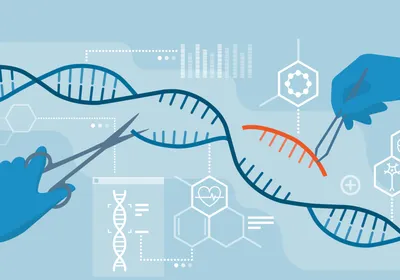ABOVE: © ISTOCK.COM, sudok1
In 2008, pediatric cardiologist Deepak Srivastava treated a newborn baby who suffered from acute heart failure and had to be put on life support. At the time, the Gladstone Institutes physician-researcher didn’t know what had caused the emergency. But when he found out that the baby’s parents had previously lost a child at 24 weeks into the pregnancy, Srivastava became suspicious that there was a genetic component to the disease.
In 2011, Srivastava and collaborators used whole-exome sequencing to search for genetic variants in Tatiana, by then three years old, and her parents. It turned out that Tatiana’s father had mutations in MYH7 and MKL2 (also known as MRTFB or myocardin related transcription factor B), genes important for heart and muscle development. Her mother, meanwhile, had a variant of the NKX2-5 gene, which encodes a cardiac-specific protein involved in regulating embryo development. Each mutation led to ...





















